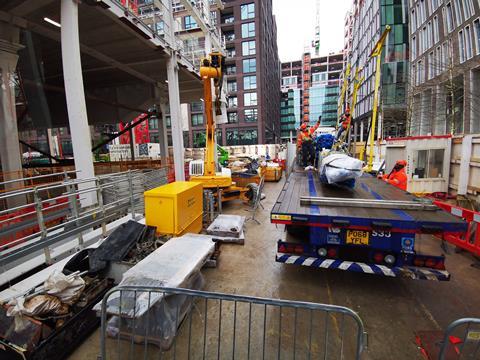Some of the changes under lockdown may be here to stay, says EY’s UK construction leader Ian Marson

Covid-19 has created a unique set of challenges for business and society, with different sectors experiencing this crisis in different ways and on different timelines. The construction sector is now operating in the ‘recovery’ phase, with companies either restarting operations or preparing to do so.
The sector will need to think about how to build flexibility into operations to prepare for the uncertainty that lies ahead. This uncertainty has many facets, from unknown demand and cash flow to the possibility of future government restrictions and workforce constraints.

During this critical phase, there should be two areas of focus: ‘restart and adapt’ and ‘resilient recovery’.
Safety is obviously critical to the restart. An important part of this process is re-engagement with staff, subcontractors, suppliers and customers to understand their concerns and priorities and to communicate changes effectively. Communication and a demonstrable commitment to a new form of site safety will help to build the necessary confidence for recovery.
One of the biggest tests comes when weakened businesses need to reflate balance sheets and restock inventory
The restarting process should help focus contractors’ minds on what is truly essential and how they need to work hand-in-glove with their supply chain. Larger companies may need to provide additional support to subcontractors and suppliers to help them restart their business.
One of the biggest tests comes when weakened businesses need to reflate balance sheets and restock inventory. Companies will need to maintain cash discipline and evaluate spending priorities. A simplified proposition and operating model – and progressively scaling up complexity where it adds value – can help to ease operational, financial and supply chain pressures.
Businesses also need to think about ways in which they can build in more financial and operational flexibility.
Companies should consider if and how they need to phase workforce return and how they could adapt to a slow and unstable increase in demand. A phased start will allow businesses to test their new working practices. If conditions change, it will make it easier to adapt.
>> Worries grow over cut-throat bidding and cash flows drying up
>> Coronavirus: The companies making covid-19 job cuts
During a protracted and volatile recovery, operations need to be sustainable. Most businesses will be operating with reduced capacity due to new working practices, including a lower density of workers on-site, as well as likely reduced demand. Companies will need to consider adapting both their cost-base and products and services.
It will be important to manage stakeholder expectations during the restart, given the extra pressure companies will feel on their balance sheets. Companies will continue to raise capital and draw down on debt facilities to meet these demands. As government support measures taper off, companies should monitor capital needs conservatively.
Financial resilience will come from lowering the cost base, increasing liquidity and using virtual scenario planning
Financial resilience will come from lowering the cost base over the longer term, increasing liquidity in the short term and using virtual scenario planning to cope with downturns and upturns in the interim.
What companies do now will set the foundation for everything that comes beyond. While focusing on the current challenge, management also need to keep in mind what happens next. Although some things will go back to what they were, some of the changes under lockdown may be here to stay.
The next 12 to 18 months is a chance for the sector to plan how to adapt and strengthen longer-term resilience, rather than seek to return to business as usual. Businesses need to embrace the challenge of transformation, including investing in offsite and technological solutions, answering to different societal expectations and better understanding risk. Those that can do this successfully will emerge all the stronger on the other side of the crisis.
Ian Marson, UK construction leader at EY



























No comments yet